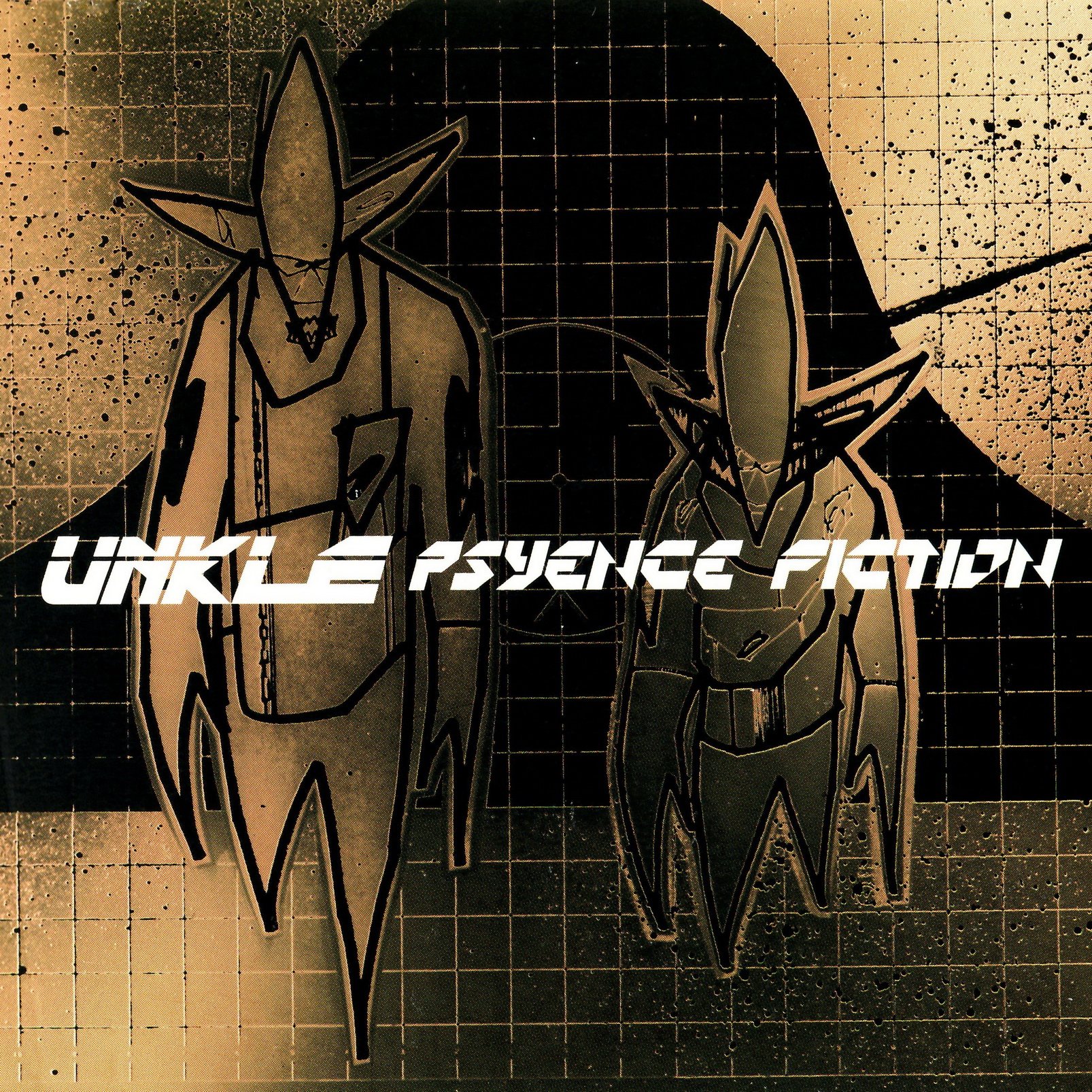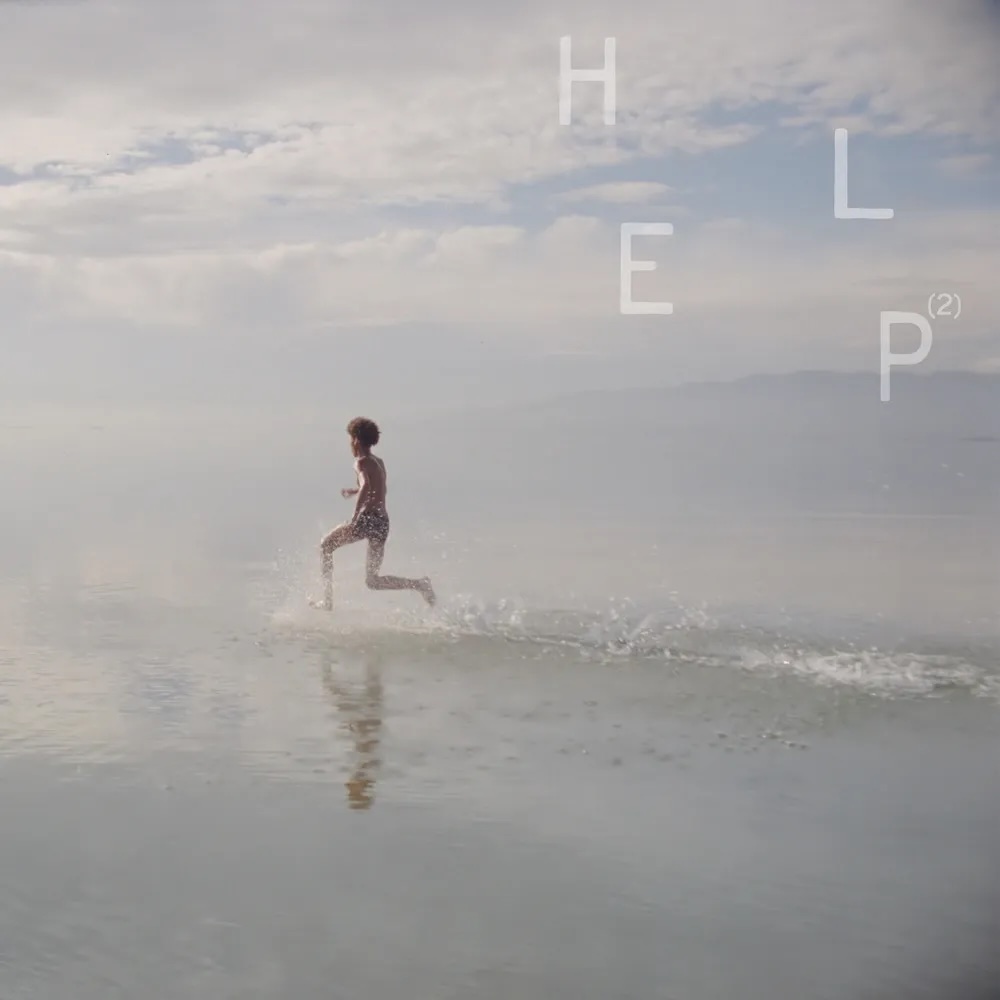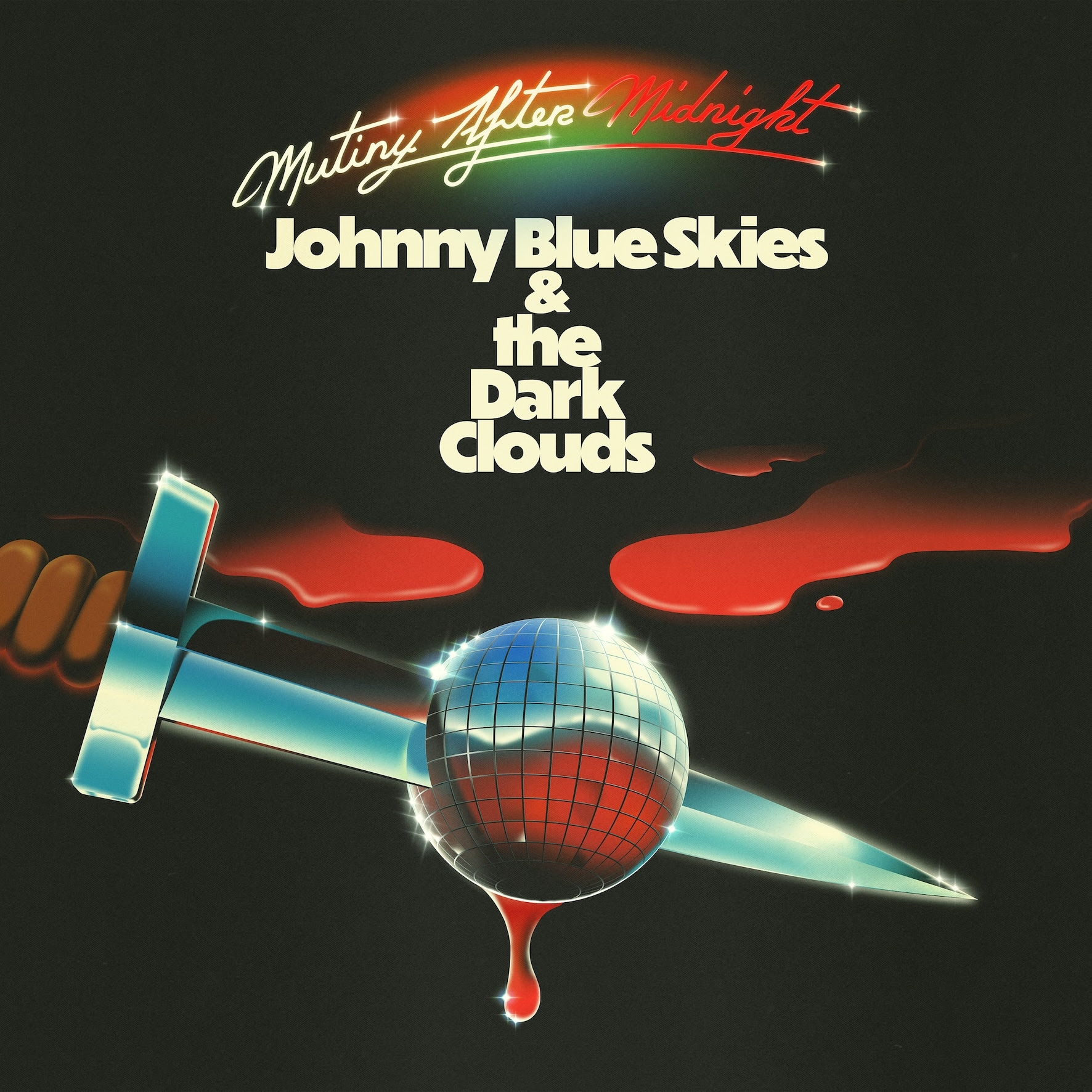Science fiction is an act of prophecy. Whether we're talking spaceships-and-aliens fare like Star Trek, or Black Mirror-style visions of modern life twisted just beyond comfort, sci-fi stories involve predicting the future. The genre invites people to imagine possibilities -- both technological advancements and the exciting and terrifying human capacities that would arise from them -- and to write those possibilities into existence.
Psyence Fiction is an act of prophecy, too. The debut album from Mo'Wax label head James Lavelle's production collective UNKLE, released 20 years ago today, was a relatively big deal in its day. It was the first major release from DJ Shadow, the album's primary producer, following 1996's landmark Endtroducing...... It represented an intriguing merger of Lavelle's good taste and business acumen and Shadow's pioneering trip-hop turntablism. It featured an all-star cast of guests including Radiohead's Thom Yorke, Beastie Boys' Mike D, the Verve's Richard Ashcroft, Kool G Rap, and instrumental contributions from Metallica's Jason Newsted and Talk Talk's Mark Hollis. It launched a music video to MTV ubiquity. But returning to Psyence Fiction two decades later, it feels like an even bigger deal now.
These days an album bringing together a wide-ranging cast of guests from different genres is not so novel. Just this year XL Recordings head Richard Russell released an album with his own UNKLE-like project Everything Is Recorded, aligning figures such as Kamasi Washington, Sampha, Syd, Peter Gabriel, Ibeyi, Owen Pallett, Giggs, Wiki, and Obongjayar. Hipster superstars like Solange and Frank Ocean regularly collide disparate scenes via their albums' guest lists. Gorillaz have been going strong with such eclectic rosters since the turn of the millennium. I honestly would not be surprised if the new Vampire Weekend album features a bunch of rappers and singers on it. Such cross-pollination is taken for granted by now.
That's partially due to the existence of albums like Psyence Fiction. In 1998, putting Thom Yorke and Kool G Rap on the same record was still a radical act -- not unprecedented, but certainly uncommon. Before this album, plenty of musicians were mashing rap, rock, and electronic music together within their own work. In 1998, for instance, there was nu-metal -- just last week we revisited breakout albums by KoRn and Kid Rock -- and plenty of rock bands such as Smashing Pumpkins were toying around with electronic textures. Post-rock and other forms of genre-defying instrumental music were percolating. Earlier in the '90s, Sonic Youth had Chuck D on "Kool Thing" and R.E.M. welcomed KRS-One onto "Radio Song." The Judgment Night soundtrack presciently paired up a bunch of rappers and hard rock bands in 1993. As long as there has been popular music, there have been unexpected collaborations.
That said, the idea of recruiting a bunch of seemingly unrelated artists to turn your record into an eclectic cool-kid party was still very new. In practice, blockbuster movie soundtracks such as Batman Forever and Godzilla were reaching beyond genre lines, but these were corporate branding exercises that played like genre-agnostic mixtapes. In spirit, the closest parallel to Psyence Fiction's approach was probably the Beastie Boys' brimming cauldron of NYC style, and even their albums were outflows of the core group's diverse taste. Psyence Fiction was like if the Beasties had invited their whole rolodex to the studio to participate in a group project.
Loosely tied together through sci-fi samples -- but more practically unified by an Shadow's unmistakable aesthetic -- the album played as a journey through Shadow and Lavelle's world, like one of those space voyage movies where you meet characters on different planets but they're all part of the same galaxy. It put these seemingly unrelated voices in conversation within the unified context of visionary nocturnal trip-hop. It was a real connecting-the-dots moment -- or tracing the constellations, if you will. And people noticed. Not long after Psyence Fiction dropped, likeminded ecumenical collectives like Gorillaz and Handsome Boy Modeling School followed in its wake. By the end of the '90s, these curated hipster projects were a certifiable trend.
That pioneering quality is the first thing that stood out to me upon revisiting Psyence Fiction. The second thing: This was an incredible collection of music! I learned about the album due to my teenage fascination with Radiohead; as such, my entry point was "Rabbit In Your Headlights," the haunting deconstructed piano ballad that serves as the album's grand finale. It was a lot of people's entry point thanks to the disturbing Jonathan Glazer-directed music video that got MTV airplay and even VMA nominations in '98, in which a grumbling mad man in a parka is repeatedly hit by passing cars. (If you've never seen it, there's a powerful twist finish that I won't spoil.) That's a great music video, but the song is even more of an achievement, a smoky jazz horror show that blasts Yorke's supernatural falsetto into the bowels of hell.
"Rabbit In Your Headlights" alone makes Psyence Fiction worth remembering, but what I didn't appreciate back then was how consistently great the rest of the tracks are. On the opening "Guns Blazing (Drums Of Death, Pt. 1)," Kool G Rap matches Shadow's percussive onslaught blow for blow, talking shit to the tune of "Someone with the hand velocity of Butch Cassidy/ Bitch nigga with the audacity to blaspheme me/ Got yourself caught in a motherfuckin' tragedy." It's a hell of an introduction to UNKLE's world. From there we get Alice Temple of Eg And Alice teaming with Shadow for some expert Portishead worship, a pre-Bewilderbeast Badly Drawn Boy surfing gorgeous guitar-drum turbulence, Mike D laying down beloved Beastie flows over another slice of intergalactic boom-bap, and Ashcroft (at his "Bitter Sweet Symphony" commercial peak) drowning in an ocean of breaks on nine-minute centerpiece "Lonely Soul." Throw in the breathtaking instrumentals like the rippling and assertive "U.N.K.L.E. Main Title Theme" as connective tissue and Psyence Fiction becomes quite the journey through Shadow and Lavelle's headspace. In terms of quality alone, it's worthy of remembering as one of the best albums of its era.
So let's do that. How'd you come around to Psyence Fiction? What's your favorite moment on the album? Have you kept up with UNKLE in the intervening decades? And what do you make of my case for its historical significance? Press play and sound off in the comments.
[videoembed size="full_width" alignment="center"][/videoembed]






